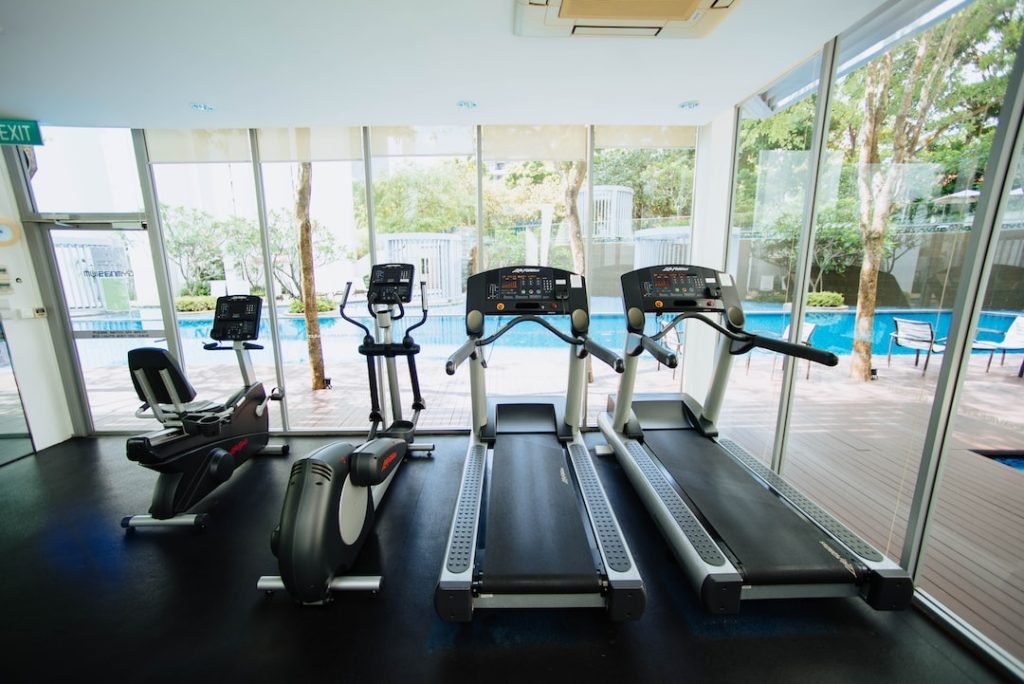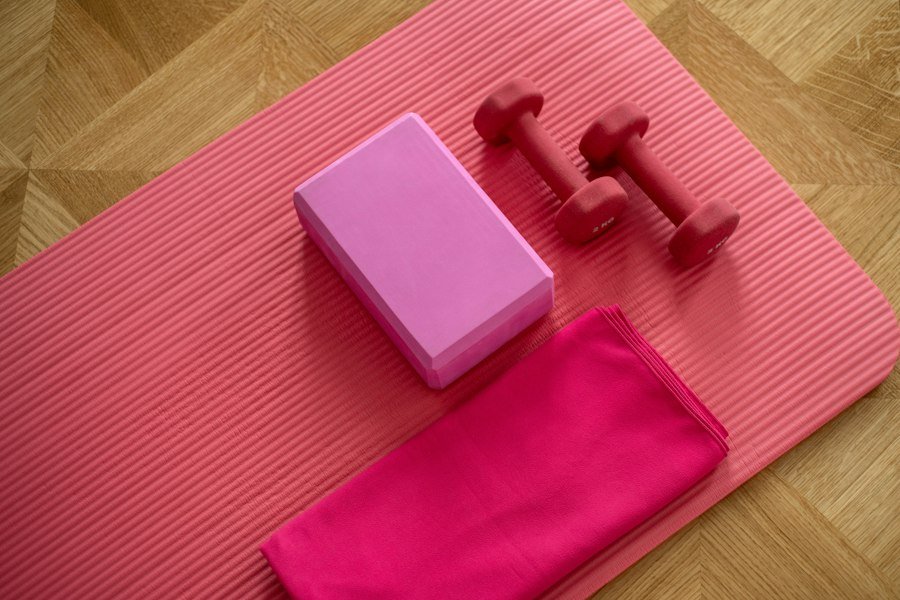

Staying Fit and Healthy in French: Lifestyle Words
Learning a new language can have numerous benefits for your overall health and wellness. It can improve cognitive function, enhance memory, and even delay the onset of age-related cognitive decline. French language learning, in particular, can help you stay fit and healthy in various ways. From vocabulary related to healthy eating habits and physical fitness to mindfulness and stress management techniques, incorporating French into your health routine can have a positive impact on your well-being.
Table of Contents
ToggleFrench Vocabulary for Healthy Eating Habits
Learning French vocabulary related to healthy eating habits can help you make better food choices. By understanding the language, you can navigate menus, read food labels, and communicate your dietary preferences more effectively. For example, learning words like “légumes” (vegetables), “fruits” (fruits), “poisson” (fish), and “céréales complètes” (whole grains) can help you identify healthier options when dining out or grocery shopping.
Additionally, learning French words for eating habits such as “manger équilibré” (eating balanced), “limiter les sucres” (limiting sugars), and “boire beaucoup d’eau” (drinking plenty of water) can reinforce the importance of maintaining a healthy diet. By incorporating these words into your daily vocabulary, you are more likely to make conscious choices that support your overall health and well-being.
French Words for Physical Fitness and Exercise
Learning French words related to physical fitness and exercise can help you stay motivated and engaged in your workouts. By understanding the language used in fitness classes or exercise routines, you can follow instructions more effectively and communicate with trainers or fellow participants. For example, learning words like “courir” (to run), “nager” (to swim), “sauter à la corde” (to jump rope), and “faire du yoga” (to do yoga) can help you diversify your fitness routine and try new activities.
Furthermore, learning French words for different types of exercises and fitness activities can help you set goals and track your progress. By understanding terms like “répétitions” (repetitions), “séries” (sets), “cardio” (cardio), and “renforcement musculaire” (strength training), you can better communicate with trainers or track your own workouts. This can enhance your overall fitness experience and help you achieve your health goals more effectively.
How to Incorporate French Language Learning into Your Fitness Routine
Incorporating French language learning into your fitness routine doesn’t have to be complicated. There are several ways you can combine language learning with physical activity to maximize your time and effort. One option is to use language learning apps or podcasts during your workouts. You can listen to French lessons or vocabulary exercises while running, cycling, or doing any other form of cardio exercise. This allows you to multitask and make the most of your time.
Another option is to join a French language class that incorporates physical activity. Some language schools offer classes that combine language learning with activities like yoga or dance. This not only helps you improve your French skills but also provides a fun and engaging way to stay active. By combining language learning with physical exercise, you can create a routine that supports both your mental and physical well-being.
French Vocabulary for Mindfulness and Stress Management
Learning French words related to mindfulness and stress management can help you stay calm and centered in your daily life. By understanding the language used in meditation, relaxation, and stress relief techniques, you can incorporate these practices into your routine more effectively. For example, learning words like “méditation” (meditation), “respiration profonde” (deep breathing), “relaxation” (relaxation), and “gestion du stress” (stress management) can help you navigate mindfulness practices and incorporate them into your daily life.
Additionally, learning French words for self-care practices such as “prendre soin de soi” (taking care of oneself), “temps pour soi” (time for oneself), and “équilibre” (balance) can reinforce the importance of prioritizing your mental and emotional well-being. By incorporating these words into your vocabulary, you are more likely to make self-care a regular part of your routine, which can have a positive impact on your overall health and wellness.
The Benefits of Bilingualism for Brain Health and Cognitive Function

Learning a new language, such as French, can have significant benefits for brain health and cognitive function. Numerous studies have shown that bilingualism can improve memory, attention, and problem-solving skills. When you learn a new language, your brain becomes more flexible and adaptable, which can enhance cognitive abilities in various domains.
Specifically, learning French can improve memory by challenging your brain to remember new vocabulary and grammatical structures. It can also enhance attention by requiring you to focus on different sounds and meanings. Additionally, learning French can improve problem-solving skills by encouraging you to think creatively and find alternative ways to express yourself.
French Vocabulary for Sleep and Rest
Learning French words related to sleep and rest can help you establish healthy sleep habits. By understanding the language used in sleep hygiene practices and relaxation techniques, you can create a bedtime routine that promotes restful sleep. For example, learning words like “sommeil” (sleep), “insomnie” (insomnia), “rituel du coucher” (bedtime ritual), and “relaxation” (relaxation) can help you navigate sleep-related topics and incorporate effective strategies into your routine.
Additionally, learning French words for relaxation techniques such as “méditation guidée” (guided meditation), “respiration profonde” (deep breathing), and “musique relaxante” (relaxing music) can help you unwind and prepare for a good night’s sleep. By incorporating these words into your vocabulary, you are more likely to prioritize sleep and establish healthy sleep habits that support your overall health and well-being.
How French Classes can Help You Stay Accountable to Your Health Goals
Joining a French language class can help you stay accountable to your health goals. By learning French with others, you create a sense of community and support that can motivate you to stay on track. Language classes provide a structured environment where you can practice speaking, listening, and reading in French, which can enhance your language learning experience.
Additionally, participating in a French class can provide opportunities for social interaction and connection. By engaging with fellow learners, you can share experiences, exchange tips, and support each other’s health goals. This sense of community can help you stay motivated and committed to both your language learning and health journey.
French Vocabulary for Self-Care and Personal Development
Learning French words related to self-care and personal development can help you prioritize your mental and emotional well-being. By understanding the language used in self-care practices and personal growth, you can incorporate these strategies into your daily life more effectively. For example, learning words like “bien-être” (well-being), “développement personnel” (personal development), “gratitude” (gratitude), and “pleine conscience” (mindfulness) can help you navigate self-care topics and incorporate effective strategies into your routine.
Additionally, learning French words for self-care practices such as “prendre du temps pour soi” (taking time for oneself), “se relaxer” (to relax), and “se ressourcer” (to recharge) can reinforce the importance of prioritizing your mental and emotional well-being. By incorporating these words into your vocabulary, you are more likely to make self-care and personal development a regular part of your routine, which can have a positive impact on your overall health and wellness.
Using French Language Learning as a Tool for Overall Health and Wellness
In conclusion, learning French can have numerous benefits for your overall health and wellness. By incorporating French vocabulary related to healthy eating habits, physical fitness, mindfulness, sleep, self-care, and personal development into your daily life, you can make conscious choices that support your well-being. Additionally, the cognitive benefits of bilingualism can enhance memory, attention, and problem-solving skills, further contributing to your overall health.
Whether you choose to incorporate French language learning into your fitness routine or join a French language class to stay accountable to your health goals, the key is to make it a regular part of your routine. By consistently practicing and using the language in various contexts, you can reap the benefits of improved cognitive function and enhanced well-being. So why not give it a try? Start learning French today and unlock a world of possibilities for your health and wellness journey.
If you’re looking to stay fit and healthy, it’s important to incorporate a balanced lifestyle into your routine. One aspect of this is maintaining a nutritious diet. In a related article, you can learn about Norwegian food vocabulary and the words you need to know before you dine. From traditional dishes to popular ingredients, this article covers it all. Check it out here and expand your culinary knowledge while staying on track with your health goals.
FAQs
What is the article about?
The article is about lifestyle words in French that can help individuals stay fit and healthy.
Why is it important to stay fit and healthy?
Staying fit and healthy can improve overall physical and mental well-being, reduce the risk of chronic diseases, and increase longevity.
What are some common lifestyle words in French related to fitness and health?
Some common lifestyle words in French related to fitness and health include “manger sainement” (eating healthily), “faire de l’exercice” (exercising), “dormir suffisamment” (getting enough sleep), and “boire de l’eau” (drinking water).
How can eating healthily contribute to staying fit and healthy?
Eating healthily can provide the body with essential nutrients, maintain a healthy weight, and reduce the risk of chronic diseases such as heart disease, diabetes, and cancer.
What are some benefits of exercising regularly?
Regular exercise can improve cardiovascular health, increase muscle strength and endurance, reduce stress and anxiety, and improve overall mood and mental well-being.
Why is getting enough sleep important for staying fit and healthy?
Getting enough sleep can improve cognitive function, boost the immune system, reduce the risk of chronic diseases, and improve overall physical and mental well-being.
How can drinking water contribute to staying fit and healthy?
Drinking water can help maintain proper hydration, regulate body temperature, improve digestion, and promote healthy skin.
If you want to learn Norwegian, you can register for classes here. We look forward to hearing from you and helping you become fluent in Norwegian.





